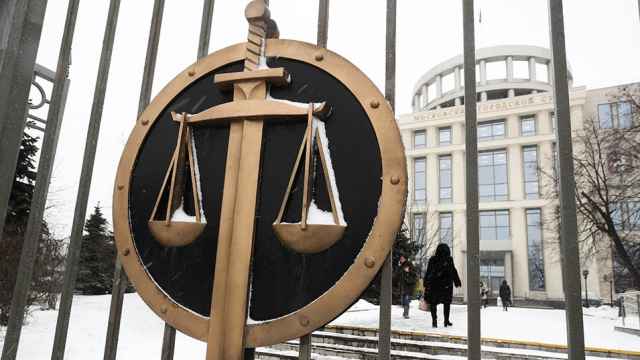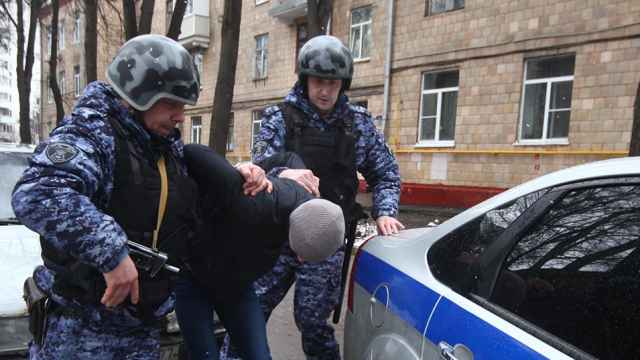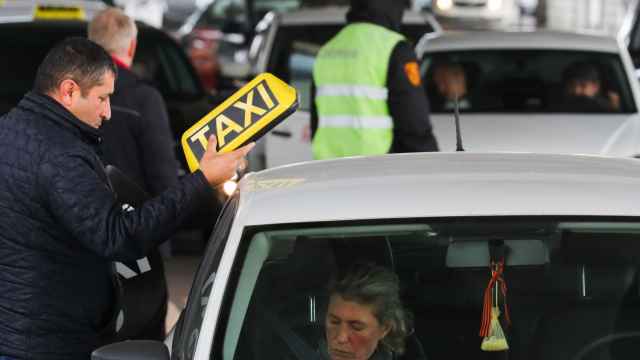Russia’s Interior Ministry has ruled to end the drug trafficking case against investigative journalist Ivan Golunov, Russian media reported Tuesday.
The anti-corruption reporter's detention and charging last week led to a national outcry among Russian journalists and human rights activists, who described it as a case against media freedom. His colleagues at the Meduza news website had said they believed the evidence against him was fabricated as punishment for his investigations.
Golunov will be released from house arrest today, Interfax quoted Interior Minister Vladimir Kolokoltsev as saying.
Kolokoltsev said an internal inquiry into the detention was underway and that he had suspended the police officers involved.
The minister also said in a statement he would ask Russian President Vladimir Putin to sack two high-ranking Moscow police generals over the case.
"I believe that the rights of every citizen, regardless of their profession, must be protected," said Kolokoltsev.
Reactions
Russian journalists, human rights activists and public figures welcomed the decision Tuesday, saying that the reversal represented a rare victory in a country where journalists critical of authorities have led a dangerous existence since the 1990s.
"Together, we did the incredible: We stopped the prosecution of an innocent person," Meduza's editorial leadership said in a statement shortly after the ruling. "This is only the beginning, and there is a lot of work to be done so that what has happened never happens again."
"I am happy, I'm crying. We understand perfectly that this happened thanks to the efforts of hundreds and thousands of people. Huge gratitude to all of them," Galina Timchenko, Meduza's general director, told Interfax.
“The system retreated under unprecedented pressure, but this says that only mass outcry can change it. We need to achieve the termination of dozens more cases against journalists and win real freedom of speech,” Russia’s trade union of journalists wrote on its Telegram channel.
And opposition politician Alexei Navalny, who had condemned Golunov's treatment, wrote:
"Yipee! The criminal case against Golunov has been dropped. Congratulations! This is just fantastic news. It's an inspiring and motivating example of what can be achieved by simple solidarity with someone in trouble. We should celebrate."
Solidarity protest
Before the police backed down, nearly 25,000 people on Facebook had expressed their intention to take part in a protest march on Wednesday in solidarity with Golunov.
City authorities had said the protesters did not have approval, and that their protest could threaten public safety.
The march presented the Kremlin with a quandary: either use force to break up the protest, and risk provoking more anger, or stand aside and let the protest take place, which risked revealing weakness to the Kremlin's opponents.
The charges against Golunov inflamed opinion among urban professionals, a group that is in a minority nationwide, but which has outsize influence in Moscow.
In an unprecedented move, Russia’s three leading daily newspapers — Vedomosti, Kommersant and RBK — published identical front pages Monday with the headline "I am/We are Ivan Golunov."
Journalists had protested outside Moscow's police headquarters day after day demanding the case be dropped and celebrities and even some high-profile state TV anchors had spoken out for Golunov.
Reuters contributed reporting to this article.
A Message from The Moscow Times:
Dear readers,
We are facing unprecedented challenges. Russia's Prosecutor General's Office has designated The Moscow Times as an "undesirable" organization, criminalizing our work and putting our staff at risk of prosecution. This follows our earlier unjust labeling as a "foreign agent."
These actions are direct attempts to silence independent journalism in Russia. The authorities claim our work "discredits the decisions of the Russian leadership." We see things differently: we strive to provide accurate, unbiased reporting on Russia.
We, the journalists of The Moscow Times, refuse to be silenced. But to continue our work, we need your help.
Your support, no matter how small, makes a world of difference. If you can, please support us monthly starting from just $2. It's quick to set up, and every contribution makes a significant impact.
By supporting The Moscow Times, you're defending open, independent journalism in the face of repression. Thank you for standing with us.
Remind me later.






